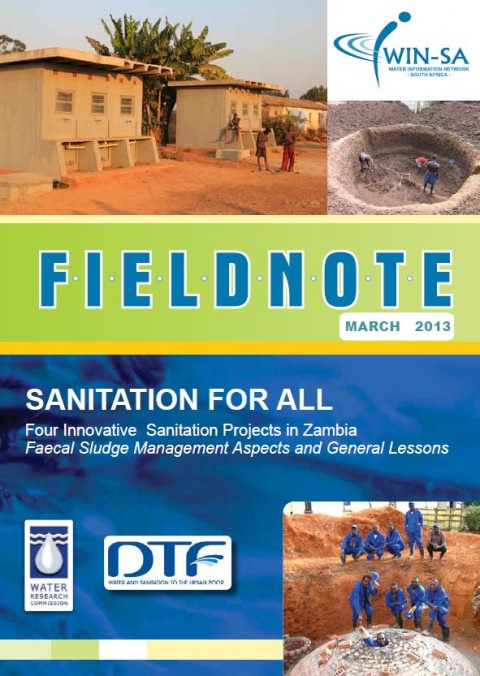Fieldnote - Sanitation for all - Four innovative sanitation projects in Zambia - Faecal sludge management aspects and general lessons
Mulenga, J., Blume, S. (2013)

Published in: 2013
Publisher:
Water Information Network (WIN-SA), South Africa
Author:
Mulenga, J., Blume, S.
Uploaded by:
SuSanA secretariat
Partner profile:
common upload
4103 Views
60 Downloads
Content - Summary
The DTF finances the largest sanitation portfolio in Zambian urban low-income areas currently. Sanitation projects are complex and require dedicated time and resources. Project implementation provides plenty capacity building opportunity for all project partners. Households are willing and can contribute to the project costs more substantially. A significant part of toilet costs shall be financed by households or landlords. Sanitation marketing, consistent communication and engagement of local leadership is crucial. Usually legal enforcement of sanitation relevant by-laws is not effective in low-income areas. Therefore integrated planning and engagement of local authorities is a crucial element for project success. Business models around the sanitation chain exist (e.g. design, construction, supervision of projects, private pit emptier). The private sector can play a crucial role, though usually access to finances is a challenge for them. The marketing of human manure and biogas has good potential in Zambia, though currently, only limited commercial orientation on sanitation in general and its potential of revenue generation by activation of reuse chain can be recognised in Zambia.
Bibliographic information
Mulenga, J., Blume, S. (2013). Fieldnote - Sanitation for all - Four innovative sanitation projects in Zambia - Faecal sludge management aspects and general lessons. Water Information Network (WIN-SA), South Africa
Filter tags
English Faecal sludge treatment processes Sub-Saharan Africa















